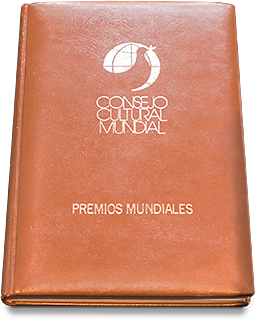
 Albert Einstein World Award of Science 2015
Albert Einstein World Award of Science 2015
Field of Work: Molecular Astrophysics
Date: 19 November 2015
Place of Ceremony: Caird Hall, Dundee
Host Institution: University of Dundee
Host Country: Scotland, UK
Professor Dr. Ewine Fleur van Dishoeck, Professor of Molecular Astrophysics at the Leiden Observatory, University of Leiden, the Netherlands has been selected as the winner of the 2015 Albert Einstein World Award of Science
This award was created as a means of recognising men and women whose exceptional scientific and technological achievements have brought progress to science and ensuing benefit to humankind.
With regard to the criterion of bringing “true benefit and wellbeing to humankind”, the jury highlighted Prof. van Dishoeck´s fundamental discoveries that have contributed to our understanding of our universe at the atomic level.
Prof. Dr. Ewine van Dishoeck is a professor of astronomy at Leiden University in the Netherlands, where she received her PhD in 1984 cum laude. She is also an external scientific member at the Max Planck Institute for Extra-terrestrial Physics.
Prof. van Dishoeck is a chemist-turned-astronomer who – over a 30-year career – has studied molecules as a means for better understanding the universe. In particular, she and her team have researched star and planet formation. Her background in chemistry and deep understanding of ‘all things molecular’ have enabled her to employ molecules as thermometers and barometers to measure the physical structure of star and planet formation. Prof. van Dishoeck has been a frontrunner in employing molecules as tools with which astronomers can study the universe. Her accomplishments include several key discoveries on how interstellar molecules form, change and find their way into forming planetary systems.
Professor van Dishoeck has applied the molecular tools that she and her students have developed to a variety of objects. Her early studies of diffuse and translucent clouds in the interstellar medium to high and low mass proto-stellar regions are widely-cited for their novelty. A recent, but highly illustrative, example of her creativity is her use of the Herschel Space Observatory to follow the water trail from interstellar clouds, to proto-stellar cores, and to planet-forming disks. The molecular tools developed under her guidance have been extensively validated and made available through dedicated websites and have become widely-used by the scientific community. In addition, Prof. van Dishoeck has been a strong advocate for astronomical flagship facilities needed to study the molecular universe: notably ALMA and MIRI/JWST. The relevance of these and other achievements is reflected in her citation numbers: nearly 500 published papers, cited more than 25,000 times, with an h-index of 84.
She holds many national and international science positions of trust, including scientific director of the Netherlands Research School for Astronomy (NOVA), chair of the working group on Astrochemistry of the International Astronomical Union, and has significant involvements in ALMA, JWST-MIRI and Herschel.
Professor van Dishoeck has received many honours and awards for her research, including the Maria Goeppert-Mayer award of the American Physical Society (1993), the Bourke Medal of the UK Royal Society of Chemistry (2001), Spinoza Award of the Dutch National Science Foundation (2000), Physical Prize of the Netherlands Physical Society (2005), and Petrie award of the Canadian Astronomical Society (2007).
She is a member of numerous prestigious bodies, including the Royal Dutch Academy of Sciences; Foreign Associate of the US National Academy of Sciences; Foreign Honorary Member of the American Academy of Arts & Sciences; and Member, Leopoldina Academy of Sciences, Germany.


